#beebo brinker
Text
Pulp Fiction anyone??!

Here at Queer Liberation Library we’ve got you covered! from Beebo Brinker, to the Gay Detective, this was such a fun collection to put together for our readers
they are flying off our digital shelves though, so get your holds in when you can! 🌈
#queer liberation library#qll#libby#queer pulp fiction#queer books#beebo brinker#spring fire#pulp friction#twilight girl#first person 3rd sex#I am a woman#stranger on lesbos#a world without men#the strange women
97 notes
·
View notes
Text
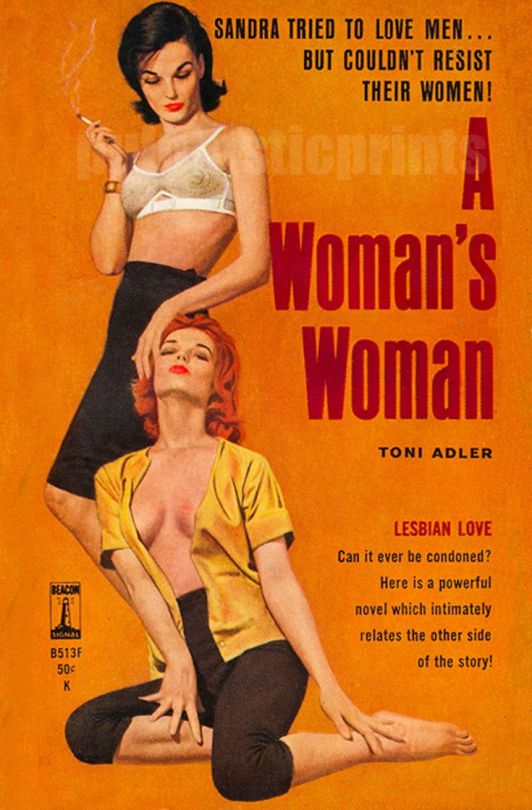
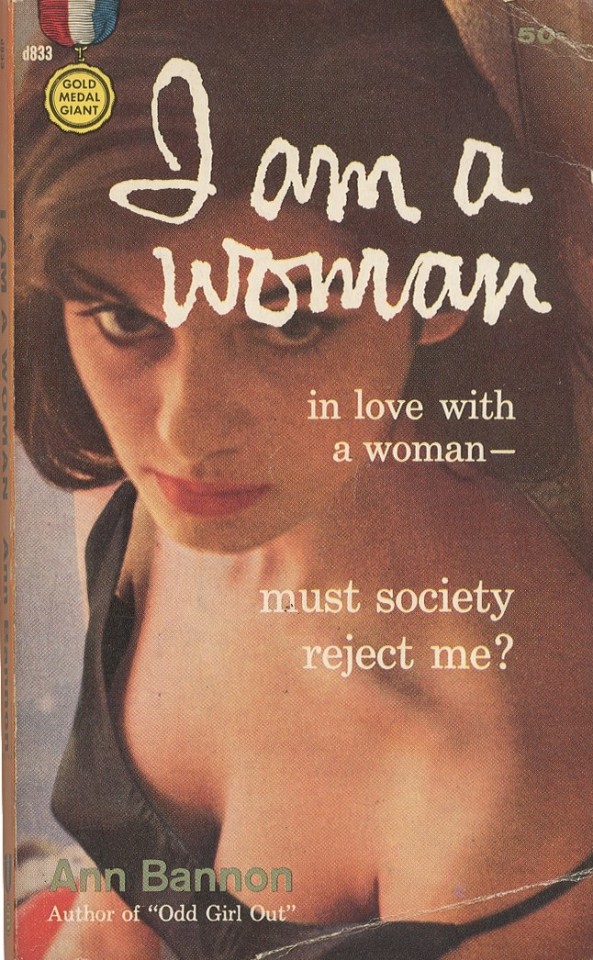

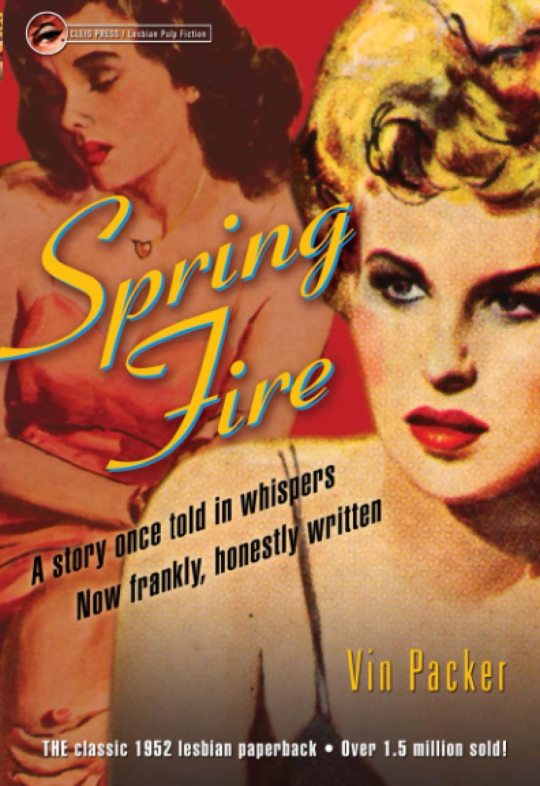
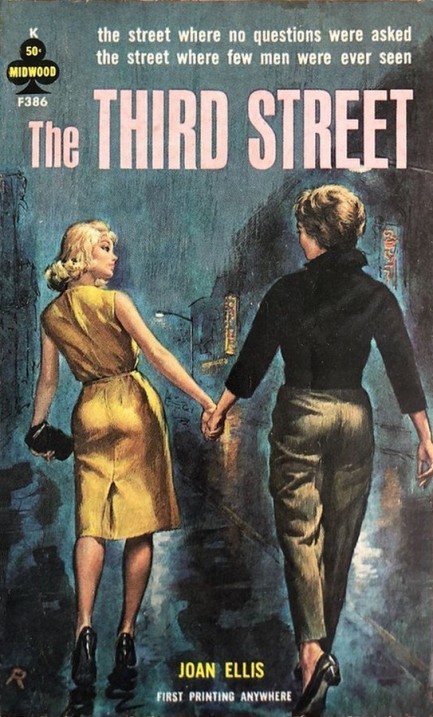
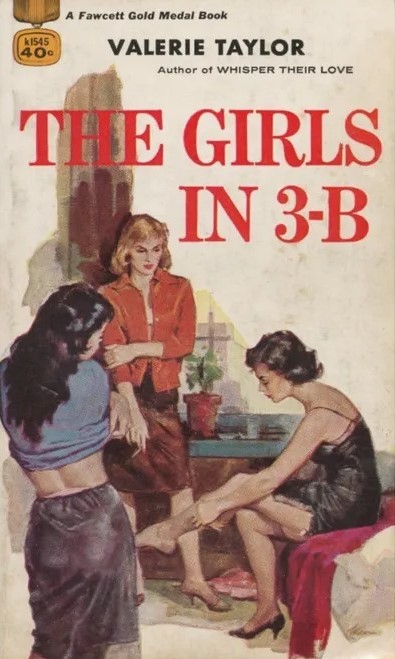
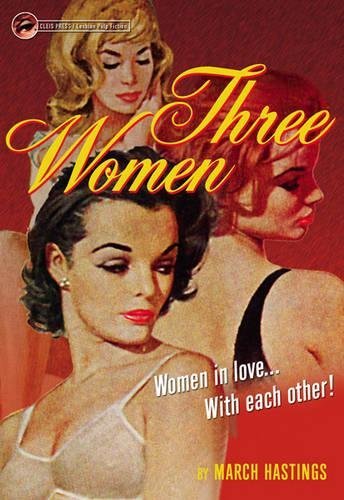


For the readers out there, I recently read The Price of Salt (Carol) by Patricia Highsmith and it left me thirsty for more! So, I have now started a collection of Lesbian Pulp Fiction, which is, I have to say, amazing! The cover art alone is magnificent! I can't help but imagine every lesbian character as Cate Blanchett in Carol (testament to how well she played her *ahem* part!) but that's not a bad thing. Here are some I'm adding to my reading list, any suggestions are welcome. To you, I suggest any of Ann Bannon's books... GO READ!
My List:
A Woman's Woman by Toni Adler
I Am a Woman, In Love With a Woman by Ann Bannon
I Prefer Girls by Jessie Dumont
Spring Fire by Vin Packer
The Third Street by Joan Ellis
The Girls In 3-B by Valerie Taylor
Three Women by March Hastings
Twilight Girls by Sherry Dale
Women's Barracks By Tereska Torres
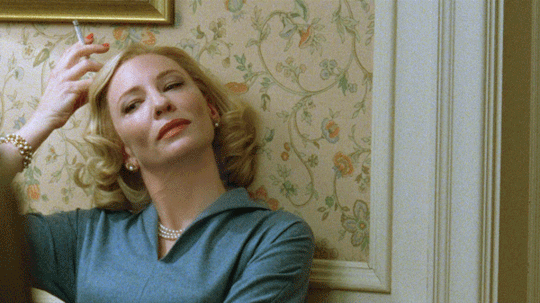
#queer#lgbtq#lesbian#wlw#50s#lesbian pulp fiction#literature#books#carol#vintage#currently reading#bookblr#ann bannon#beebo brinker#writersnetwork#sapphic
276 notes
·
View notes
Link
#sana.ref#for your convenience#bc i had trouble finding a copy last summer#i had to make a new gmail for this#yomu.list#beebo brinker#ann bannon#lesbian#butch#femme#lesbian history#queer history
27 notes
·
View notes
Text
See my previous post, but while I was down in Lewes, Delaware, I ended up going to the new life thrift shop and I picked up three books for $1.50. Here they are! 

The Ann Bannon collection includes her novels: Odd girl out, I am a woman, women in the shadows, and Beebo Brinker. 
I included the back covers, so you can read the synopses of each book if you zoom in, but I’m not gonna transcribe all of it. It’s just too much words. 
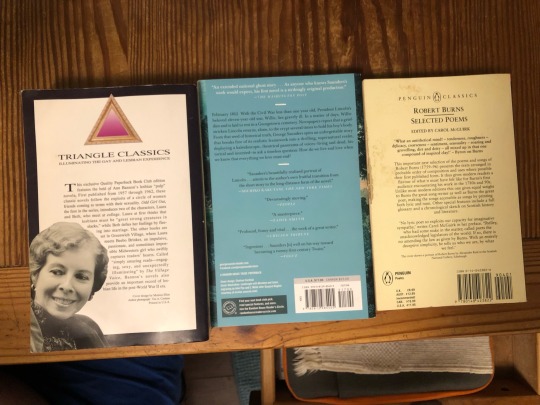
(Note I am blogging this without doing a Google check to find out if George Saunders or Ann Bannon have said or done something problematic. FYI) 
#Robert burns#george saunders#ann bannon#Beebo brinker#lgbt#lgbtqia+#The Beebo Brinker Chronicles#odd girl out#I am a woman#Women in the shadows#new life thrift shop#Lewes de#lesbian
3 notes
·
View notes
Text
"She took my girl."
"Who?"

"Beebo Brinker"
#CRYING#Everytime I see this book cover I lose my mind#I've never read it#I am simply amused by the idea of a lesbian named Beebo#on her way to take your girl#Sapphic#fiction#novels#library finds#Beebo Brinker#the lesbians extra powerful rn#lesbian fiction
4 notes
·
View notes
Text
"Are you telling me to go to hell because I—I think I'm gay?"
"I'm telling you to go to college."
4 notes
·
View notes
Text
He would have to go slowly with her, teach her gently what she was, and teach her not to hate the word for it: Lesbian. Such a soft word, mellifluous on the tongue; such a stab in the heart to someone very young, unsure, and afraid.
Ann Bannon, Beebo Brinker
0 notes
Text
Beebo Brinker and the Legitimacy of Naive Art in the Theatre
Originally posted March 3, 2008
“Beebo Brinker and the Legitimacy of Naive Art in the Theatre”
Rare are those moments — horrible and wonderful — when our waking lives assume the heightened quality of a strange and unexpected dream. Surely that is what Ann Bannon is thinking these days, given the Second Coming of her Sapphic Savior Beebo Brinker over a half century after she was created. Penned…
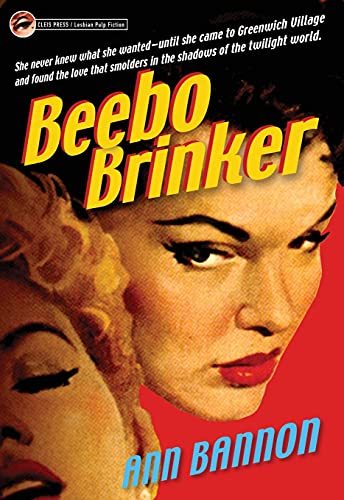
View On WordPress
0 notes
Text
“For all our boyish clothes and mannerisms... we women did not pass as men or boys... our point was not to be men; our point was to be butch and get away with it... A dyke learns much of her social function from other dykes... Whether she ever has the chance to enter a Gay bar or not, she imitates dykes, not men. She may identify with traditionally dyke figures: Diana the Huntress, Beebo Brinker, Gertrude Stein, Bessie Smith, Natalie Barney, Queen Christina, Joan of Arc, Amy Lowell, Oya, St Barbara, modern athletes, and other leaders... the social message she bears and is delivering is not ‘I am a man’ but rather ‘Here is another way to be a woman.’”
-- Judy Grahn
#compulsory femininity#female masculinity#gender non conformity#gnc#lesbian culture#lesbian womanhood#many ways to be a woman#judy grahn#butch
485 notes
·
View notes
Photo
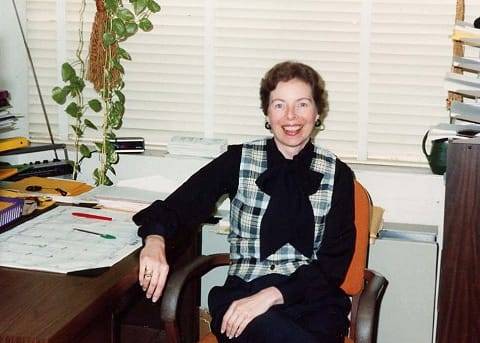
Ann Bannon
Gender: Female
Sexuality: Lesbian
DOB: 15 September 1932
Ethnicity: White - American
Occupation: Writer, academic
Note: From 1957 to 1962, wrote six lesbian pulp fiction novels known as The Beebo Brinker Chronicles. The books’ enduring popularity and impact on lesbian identity has earned her the title “Queen of Lesbian Pulp Fiction”.
#Ann Bannon#lesbianism#lgbt#wlw#lgbtq#female#lesbian#1932#white#writer#academic#popular#popular post
203 notes
·
View notes
Text
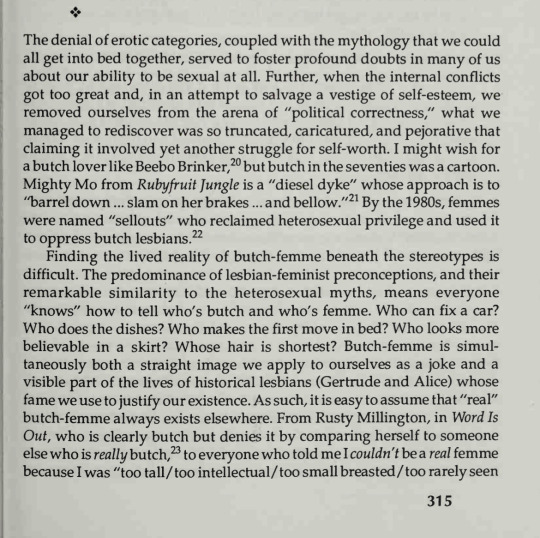


"The denial of erotic categories, coupled with the mythology that we could all get into bed together, served to foster profound doubts in many of us about our ability to be sexual at all. Further, when the internal conflicts got too great and, in an attempt to salvage a vestige of self-esteem, we removed ourselves from the arena of “political correctness,” what we managed to rediscover was so truncated, caricatured, and pejorative that claiming it involved yet another struggle for self-worth. I might wish for a butch lover like Beebo Brinker, but butch in the seventies was a cartoon. Mighty Mo from Rubyfruit Jungle is a “diesel dyke” whose approach is to “barrel down… slam on her breaks… and bellow.” By the 1980s, femmes were named “sellouts” who reclaimed heterosexual privilege and used it to oppress butch lesbians.
Finding the lived reality of butch-femme beneath the stereotypes is difficult. The predominance of lesbian-feminist preconceptions, and their remarkable similarity to the heterosexual myths, means everyone “knows” how to tell who’s butch and who’s femme. Who can fix a car? Who does the dishes? Who makes the first move in bed? Who looks more believable in a skirt? Whose hair is shortest? Butch-femme is a simultaneously both a straight image we apply to ourselves as a joke and a visible part of the lives of historical lesbians (Gertrude and Alice) whose fame we used to justify our existence. As such, it is easy to assume that “real” butch-femme always exists elsewhere. From Rusty Millington, in Word is Out, who is clearly butch but denies it by comparing herself to someone else who is really butch, to everyone who told me I couldn’t be a real femme because I was “too tall/too intellectual/too small breasted/too rarely seen in a skirt,” the message is that one might get away with being “into roles” as long as one doesn’t call them that. I am reminded, ironically, of Joana Russ’s litany of the requirements for “real lesbians,” and her conclusion: “There are no real lesbians; real lesbians have horns.” The speed with which women who reclaimed the words lesbian and dyke say they “can’t relate to labels” never fails to amaze me.
In the past, butch-femme appears to have been an admixture of heterosexual expectations and genuine challenges to the traditional construction of female gender; the shape it takes in the 1990s, one hopes, might break free of the former if lesbian-feminists would stop naming us an imitation. What is most difficult in claiming butch-femme in a “postliberation” era, however, is untangling both the homophobia that defined “real lesbian” as butch and butch-femme’s association, like that Del and Phyl make, with only a heterosexual portrait. Sally Gearhart remembers:
I think the pressure was from society, which made me feel that, if I was not a woman in the sense that the society said a woman should be, then I must be a butch. I don’t think I understood that there could be femme lesbians. I didn’t think I understood that there could be femme lesbians. I didn’t want to do the things ordinary women did, so therefore I must be like a man, and therefore, I think I dressed and acted more butch than I probably was.
Under this equation, femme is not quite a “real lesbian.” Pat Bond recalls:
There was a lot of pressure to look butch if you were [butch]. And, of course, you wanted to, ‘cause you wanted to be identified as a dyke. I was never too good at it. I looked really funny trying to look like a man. Men’s pants look funny because I’m very short waisted and big busted. Trying to wear the short haircut with sideburns shaved over the ears, I looked like the missing link.
The standard of lesbian-feminist androgyny are equally intolerant. I’ve heard from more than one younger lesbian reluctance to claim the name “lesbian” because the movement conveys “it means having to give up being a girl” because the movement conveys “it means having to give up being a girl.” For a long time, I thought I couldn’t be femme because I had never been straight. Lesbian-feminism seems determined to portray butch-femme as rigid, even though butch and femme characteristics can be interchangeable, subtle, and allow for more variation than do heterosexual sex roles. Degrees of butchness and femmeness- stone butch, butchy femme, femmy butch, ki-ki- are named points on a spectrum that is shortchanged when portrayed as masculine-feminine extremes. It is difficult to imagine heterosexual patriarchy allowing women to experiment with and choose sexual roles or no role at all. Yet, it is from feminists that I still hear that I can’t wear a skirt, whereas my butch lover Jo never thought knowing how to rebuild an engine made me less femme.
As an issue, butch-femme is fraught with ambivalence and denial. When Jo Ann Loulan asked lesbian audiences around the United States if they had ever rated themselves or been rated by others on a butch-femme scale, 95% acknowledged they had. Yet the same percentage also affirmed that they “did not consider butch-femme to be an important concept in their lives.” Loulan points that this is a statistical anomaly; rarely does a group insist that a universal experience is universally unimportant. In a separate but related survey, Loulan found that one-third of her respondents identified themselves as either butch or femme, but that fully three-quarters of those who did so claimed not to demonstrate that identity in obvious ways within the lesbian community. If Loulan’s data is valid, a substantial proportion of one-third of the community is “in the closet” about a butch-femme identity."
"Recollecting History, Renaming Lives: Femme Stigma and the feminist seventies and eighties" by Lyndall MacCowan, The Persistent Desire, (edited by Joan Nestle) (1992)
#the persistent desire#Lyndall maccowan#Joan nestle#lesbian#lesbianism#butch and femme#butch lesbian#femme lesbian#butch#femme#lgbt+#lgbtq+#lesbian writing#lesbian history#lgbtq+ history#lgbtq+ writing#writing#history#long post
35 notes
·
View notes
Note
have you ever read the beebo brinker books? they are lesbian pulps set in nyc kind of similar to the price of salt, but beebo brinker is super butch
I have not! O: I’m embarrassed to say, pulp fiction completely slipped under my radar, I must amend that immediately, thank you so much for the rec!!
25 notes
·
View notes
Text
thinking about 2023.
i read 15 books this year. not a ton, but a good amount for how many things i have going on. a good chunk of it was lesbian pulp from the fifties (i don't get why people were frothing at the mouth for beebo brinker. between the domestic violence and dog murder. well. she sucks).
didn't get any papers published, although there's one in the works. i survived another two semesters of grad school. made friends with people in my field from other universities and labs. i still need to finish this one coding project i had.
didn't do as much with the union as i would have liked to. hoping i will have more free time next year.
in that same vein, i wish i had spent more time with my friends this year. so much of my time went to work and school. i fit in some camping/hiking/etc over school breaks but i wish there had been more of it.
i did do some things i'm proud of! i got married and had a nice little party. ran a marathon. pr in the half marathon. dog training has been slow but successful.
in 2024 i'm going to try to limit time online, cook more (& different foods), and get better at going to the dentist (something i am currently very good at avoiding. hate the dentist. not the actual person but like. the experience). feels like very easy and achievable goals. we'll see :)
#new years bs#i would also like to start lifting again#(i stopped because it felt pointless. all of my calories were going into marathon training#and there was no way i would put on muscle)#this is maybe less achievable given the fact that i hate the gym#because you have to wait 20-30 min to get a bench or squat rack#and i am not willing to spend money on a membership to a nicer gym
9 notes
·
View notes
Text
Damn they just don't name dykes Beebo anymore
4 notes
·
View notes
Text
Beebo folded it with the meticulous care you give to the oddments of life that happen to be in your hands when pain strikes; each fold careful, straight, and neat - as tidy as her life was not. There is an obscure comfort in smoothing a small piece of paper to its ultimate neatness. It seems a symbol of order and reason that must somehow rescue you from the chaos of suffering. It eased the misery that wants to pour out of your eyes and wail from your throat.
Ann Bannon, Beebo Brinker
0 notes
